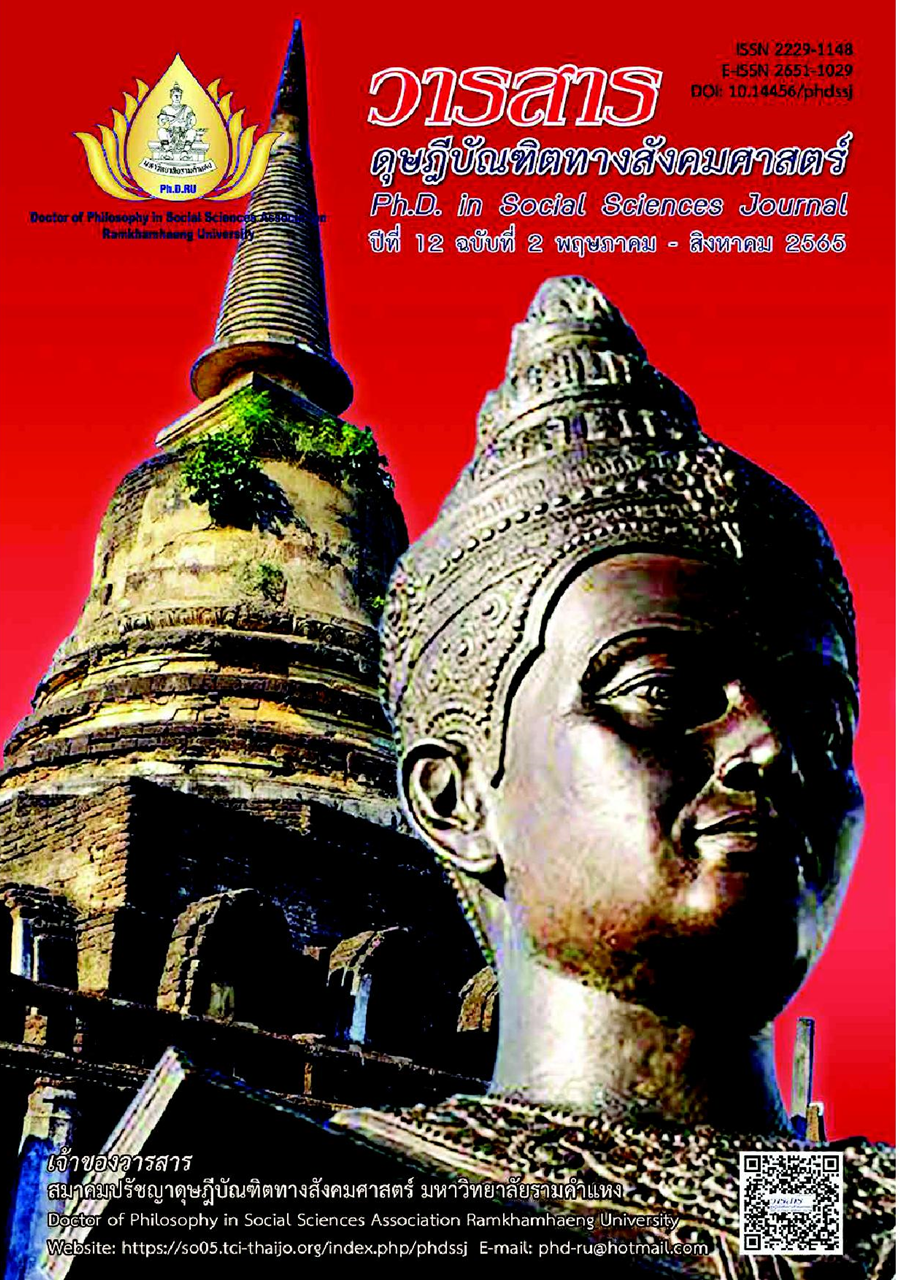A Competency Development Model for Hotel Personnel: A Case Study of the Zign Hotel Chain
Main Article Content
Abstract
The research article objectives were (1) to study the conditions and needs for developing performance competency of the staff of the Zign Hotel Group, (2) to create a model for performance competency development, and (3) to assess the model of the performance competency development. The research consisted of 3 steps. Step 1 fulfilled the first objective through conducting in-depth interviews with 24 hotel department heads. Questionnaires were also used to collect data from 692 employees. Step 2 was the development of a performance competency model via Exploratory Factor Analysis (EFA) with Equamax rotation to extract the related factors. Step 3 was conducted with nine experts recruited to assess the created model.
The research findings were threefold. The first finding revealed that the hotel considered personal development as a necessity, and thus set a plan to uplift operational knowledge and skills among the staff by organizing internal trainings. The training plan aimed at promoting the staff’s continuous learning and multi-task ability. Monitoring and evaluation were also continuously conducted to yield feedbacks for further personnel improvement and development. The second finding indicated four skills derived from the factor analysis: Human relations skills, cognitive skills, operational technical skills, and personality skills. The finding in this step was used to develop the competency development model.
Article Details

This work is licensed under a Creative Commons Attribution-NonCommercial-NoDerivatives 4.0 International License.
Academic articles, research articles, and book reviews in the Ph.D. in Social Sciences Journal are author’s opinions, and not the publisher’s, and is not the responsibility of the Ph.D. in Social Sciences Journal Philosophy Association, Ramkhamhaeng University. (In the case that research is done on human, the researcher has to be trained in Ethics for Doing Research on Human Training and has to produce the evidence of the training).
References
Ammuang, T. (2014). Service mind. Mahidol University, Office of the President. [In Thai]
Boonpektrakul, O. A. (2014). Developing action-plan training model to enhance employee’s competencies: A hotel case study. Stamford Journal, 5(2), 1-25.
Dessler, G. (2008). Human resource management (11th ed.). Pearson Education.
Harrison, R., & Kessels, J. (2004). Human resource development in a knowledge economy: An organizational view. Palgrave MacMillan.
Ivancevich, J. M., & Matteson, M. T. (2001). Organizational behavior and management (5th ed.). McGraw-Hill.
Janyam, K. (2013). Industrial and organizational psychology. Odeon Store. [In Thai]
Khammani, T. (2011). Science of teaching pedagogy: Knowledge for effective learning management (5th ed.). Chulalongkorn University Press. [In Thai]
Keeves, J. P. (1988). Educational research, methodology and measurement: An international handbook. Pergamon.
Ko, C. H. (2009). A study of the critical success factors that are synonymous with efficient international tourist hotels in Taiwan. Dissertation Abstracts International, 69(02), 514-A. (UMI No. 10309092)
Krejcie, R. V., & Morgan, D. W. (1970). Determining sample size for research activities. Educational and Psychological Measurement, 30(3), 607-610.
Laoharawe, W. (2010). Job competencies for Day Spa personnel in Bangkok Metropolis. Master Thesis of Business Administration, Sukhothai Thammathirat Open University. [In Thai]
Luka, I. (2015). Enhancing employability skills for tourism and hospitality industry employees in Europe. Acta Prosperitatis, 6, 75-94.
Mondy, R. W., Noe, R. M., & Premeaux, S. R. (1999). Human resource management (7th ed.) Prentice Hall.
Novicevic, M. M., Hayek, M., & Fang, T. (2011). Integrating Bernard’s and contemporary views of industrial relations and HRM. Journal of Management History, 17(1), 126-138.
Phrommani, P., Eiamsa-Ard, S., & Grasung, P. (2017). Guideline to construct and development model for public health operations for public health officer. Association of Private Higher Education Institutions of Thailand Journal, 6(2), 128-135. [In Thai]
Saentong, N. (2017). Easy HR: Competency. Think Beyond Books. [In Thai]
Shahrabni, S., Goziker, O., & Teitler-Regev, S. (2015). Perceptions and future intentions to stay in the hotel industry: The case of front desk employees in Israel. African Journal of Hospitality, Tourism and Leisure, 4(1), 1-13.
Sivalai, P., & Sonsuphap, R. (2014). Adaptation of Thai hotel hospitality towards ASEAN economic community, case study: Emporium Suites by Chatrium. Journal of Finance, Investment, Marketing and Business Management, 4(1), 273 -285. [In Thai]
Swanson, R. A., & Holton, E. F. (2009). Foundations of human resource development (2nd ed.). Berrett-Koehler.
Thavichip, N., Keerativinitkul, P., & Chatuchai, W. (2011). The needs for potential development of hotel business personnel of Rajabhat Universities in Bangkok metropolitan area. SSRU Journal of Management Science, 7(1), 11-21. [In Thai]
Torchoo, P. (2016). The efficiency development of operation. Industrial Technology Review, 22(282), 94-100. [In Thai]
Valdez, E. J. C., Alcantara, S. S. B., Pamintuan, C. A., Relos, J. G. R., & Castillo, R. C. (2015). Contributions of on-the-job training program to the skills, personal qualities and competencies of tourism graduates. Asia Pacific Journal of Multidisciplinary Research, 3(4), 102-110.
Werner, J. M., & DeSimone, R. L. (2006). Human resource development (4th ed.). South-Western College.
Wonganutrohd, P. (2008). Educational psychology. Bangkok Media Center. [In Thai]


